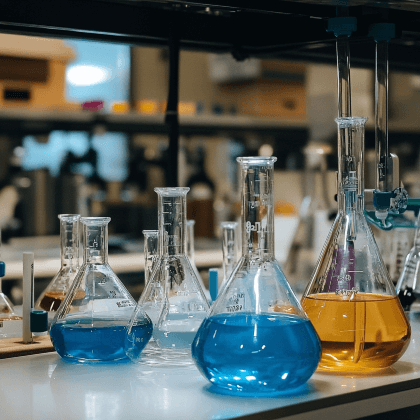
In the world of science and industry, precision is paramount. Whether in a pharmaceutical laboratory or a chemical manufacturing facility, the accurate measurement of chemicals is essential for ensuring safety, efficacy, and consistency. Understanding the methods and tools used to weigh chemicals not only enhances operational efficiency but also upholds the integrity of experimental and production processes.
The weighing of chemicals involves a blend of sophisticated equipment and meticulous procedures. This ensures that every measurement aligns with exact specifications, which is crucial when dealing with substances that can be highly reactive or toxic. As we delve into the methods of weighing chemicals, we will explore the instruments used, the techniques employed, and the importance of precision in this critical aspect of chemical handling.
From analytical balances to modern digital scales, the technology behind weighing chemicals has evolved significantly. Join us as we unpack the intricacies of how chemicals are weighed, highlighting the best practices and innovations that drive accuracy in this fundamental scientific task.
The Importance of Precision in Chemical Weighing
Accurate weighing is the cornerstone of any chemical process. The slightest deviation in measurement can lead to significant discrepancies in results, which is especially critical in pharmaceuticals where dosage and composition are tightly regulated. Precision ensures that reactions occur as expected, products meet quality standards, and safety protocols are maintained.
In laboratory settings, chemists rely on precise measurements to replicate experiments and validate findings. Without accurate weighing, reproducing results becomes challenging, hindering scientific progress. Moreover, in industrial applications, precise measurements are vital for cost control and efficiency. Overuse of expensive chemicals due to inaccurate weighing can lead to increased operational costs.
Precision in weighing also plays a pivotal role in safety. Handling chemicals often involves substances that can be hazardous if not measured correctly. An excess or deficiency in the quantity of a reactive chemical can pose risks of uncontrolled reactions, health hazards, or even catastrophic failures in industrial processes. Therefore, employing accurate weighing techniques is not just about efficiency but also about safeguarding people and the environment.
Types of Weighing Instruments Used
The choice of weighing instruments depends largely on the required precision and the nature of the chemicals being weighed. Analytical balances are commonly used in laboratories for their high precision, capable of measuring masses to the nearest 0.1 milligram or better. These balances often come with enclosures to prevent air currents from affecting the measurement, ensuring utmost accuracy.
In industrial settings, platform scales and bench scales are prevalent. These scales are designed to handle larger quantities of chemicals, providing reliable measurements for bulk substances. They are robust and can withstand harsh industrial environments while delivering accurate readings necessary for large-scale production.
For extremely sensitive measurements, microbalances and ultramicrobalancesare used. These instruments can measure masses with an accuracy of up to 0.1 micrograms. Such precision is essential in fields like nanotechnology and pharmaceuticals, where even the tiniest amount of a substance can have significant effects on the overall formulation and efficacy of a product.
Best Practices in Chemical Weighing Procedures
Adhering to best practices in weighing ensures accuracy and safety. One crucial practice is calibrating scales regularly. Calibration accounts for any drifts in accuracy due to environmental factors or equipment wear and tear. Using calibration weights and following manufacturer guidelines helps maintain the reliability of measurements over time.
Another important practice is temperature and humidity control. Environmental conditions can affect both the chemicals and the weighing instruments. For instance, moisture absorption can alter the mass of hygroscopic substances, while temperature fluctuations can cause expansion or contraction of materials, affecting scale readings. Therefore, conducting weighing in controlled environments minimizes these variables.
Proper handling techniques are also essential. This includes using clean containers, avoiding direct contact with chemicals, and allowing warm or cold samples to equilibrate to room temperature before weighing. Additionally, documenting each measurement diligently ensures traceability and allows for the verification of results, which is especially important in regulated industries.
Conclusion
Weighing chemicals accurately is a fundamental aspect of scientific research and industrial processes. It ensures that experiments yield valid results, products meet quality standards, and safety protocols are upheld. By understanding the importance of precision, utilizing the appropriate instruments, and following best practices, one can achieve reliable and accurate measurements essential for success in the chemical field.
At Sasco Africa, we understand the critical role that precise weighing plays in your operations. Our extensive range of weighing systems and scales is designed to meet the diverse needs of laboratories and industrial facilities alike. Explore our selection to find the perfect solution that ensures accuracy and efficiency in your chemical weighing processes.


